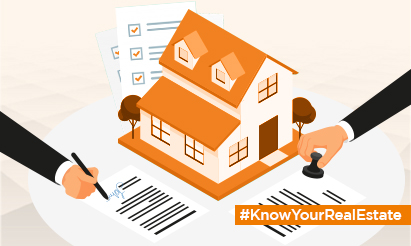Real Estate transaction in India: what you need to know?
A report by IBEF suggests that the real estate market of India is likely to reach USD 1 Trillion by 2030 from USD 120 billion in 2017. The report further suggests that India’s real estate market is expected to reach USD 650 billion by 2025 thereby contributing 13% to the country’s GDP. Apart from increasing real estate requirements from the education and healthcare sectors, the residential sector is also growing significantly.
In the second half of 2020, major cities of India saw a 2x jump in housing demands that signified optimum market recovery. However, the demand for low rate homes having good amenities is the ones keeping this sector afloat. Implementation of GST and RERA are helping to keep a check on real estate transactions, further gaining buyer’s trusts.
While the government’s reforms successfully gained the trust of real estate buyers, sellers, and brokers, they have also added to the complexity of real estate transactions. However, Indian real estate buyers are trying to embrace them.
Further, these legal measures are making it easier to get a home loan for all registered properties.
Process of buying home in India
Buying a home is a dream for average Indian customers due to lower incomes. However, home loans from various banks and financial institutions are making it easier for most. Various laws and legal processes of real estate transactions are also gradually earning the trust of common buyers. It has further eased the process for residential property sellers and brokers.
General steps involved in the process of real estate transaction are:
- Budget calculation of buyers
- Decide location
- Property type – residential or commercial
- Check the resale value of real estate
- Check rental value of the property for commercial and residential purpose
- Identify home loan eligibility and application
- Registration and stamp duty payments
- Commission to the broker
GST Reform Helping Boost Real Estate Transactions
The economic crisis caused by both waves of COVID-19 led the government to take measures that could possibly help revive the real estate sector, which saw a huge slump in its sales since the pandemic first hit in March 2020.
Lower GST rates are steadily triggering real estate transactions and reviving the sector. ASSOCHAM and NAREDCO have also suggested the same to the government for further improvement. The NAREDCO president recently told the media that the step to lower GST rates will potentially increase the overall recovery of the real estate sector while helping its buyers, sellers, and brokers.
Also, the buyers do not have to pay GST on ready-to-move-in apartments or purchasing plots. GST reforms have subsumed additional taxes that used to increase property prices.
GST on residential real estate
| Property type | GST after April 2019 |
| Affordable housing (up to Rs 45 lakhs) | 1% without ITC |
| Non-affordable housing (above Rs 45 lakhs) | 5% without ITC |
Note: ITC refers to input tax credit
GST on under-construction home
| Property type | GST rate |
| Under-construction home bought under PMAY CLSS | 8% |
| Under-construction home bought without PMAY CLSS | 12% |
| Work contracts for affordable housing | 12% |
Note: PMAY refers to Pradhan Mantri Awaas Yojna
CLSS refers to credit-linked subsidy scheme
It must be noted that GST on home loan repayment does not apply for carrying out regular real estate transactions. However, banks or lending financial institutions may apply GST on processing and legal fees.
GST impact on property registration and stamp duty
There has been no move in eliminating property registration and stamp duty costs even after the introduction of GST on real estate in July 2017. Buyers have to pay 5-10% of the total property cost as stamp duty that varies as per different state laws. For the registration costs, it is generally 1% of the total property cost or the standard fee set by the state.
It is said that a large part of revenue earned by the states on real estate transactions comes from stamp duty. It may be the reason that these costs have not been subsumed under GST.
Indian real estate outlook 2021
The coronavirus pandemic drastically impacted the real estate sector in 2020. While the industry saw a boost in the number of buyers between November 2020 and March 2021, real estate transactions were disrupted again due to the second wave of COVID-19.
However, it is projected that demands may increase after a significant population of India gets vaccinated against the virus. Real estate transactions are however projected to increase in the coming months as the curfews and local lockdowns are lifted, while property prices and interest rates remain low.
Besides, Real Estate Investment Trust (REIT) is gaining popularity among sellers and brokers who want to enjoy better rental yields.
Disclaimer: The views expressed above are for informational purposes only based on industry reports and related news stories. PropertyPistol does not guarantee the accuracy, completeness, or reliability of the information and shall not be held responsible for any action taken based on the published information.




